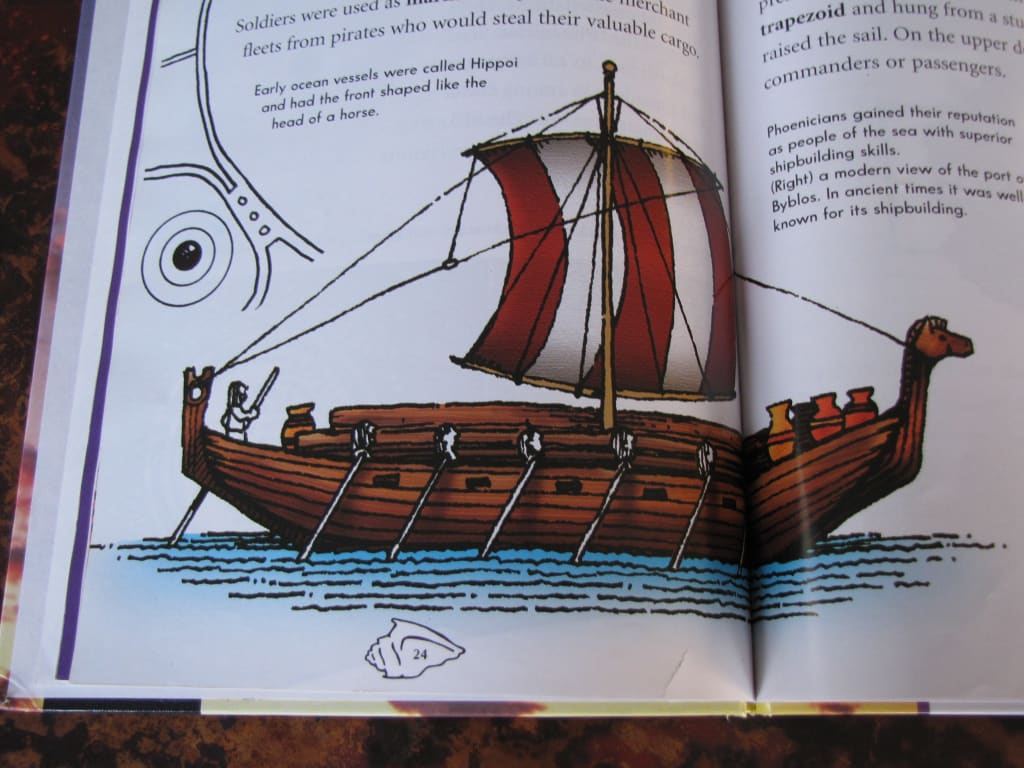Why Phoenicians DOMINATED Maritime Commerce (Phoenician Ships)
History

Phoenician ships are legendary for their role in establishing the ancient Phoenicians as preeminent mariners and traders of the Mediterranean. These advanced vessels enabled the Phoenicians to dominate maritime commerce, spread their culture, and establish colonies far from their homeland in modern-day Lebanon. This article explores the origins, design, technological innovations, economic impact, and enduring legacy of Phoenician ships.
Origins and Historical Context
The Phoenicians, emerging around 1500 BCE, were a Semitic-speaking people whose cities, including Tyre, Sidon, and Byblos, thrived on the coast of the eastern Mediterranean. With limited arable land, the Phoenicians turned to the sea for sustenance and economic prosperity. Their mastery of shipbuilding and navigation laid the foundation for their expansive maritime trade network, which spanned from the Levant to the Atlantic Ocean.
Design and Technological Innovations
Phoenician ships were renowned for their innovative designs and robust construction, enabling long-distance travel and heavy cargo transport:
- Construction Materials: Phoenician shipbuilders primarily used cedar wood from the forests of Lebanon, prized for its durability, resistance to rot, and workability.
- Ship Types: Two main types of ships were used: merchant ships and warships. Merchant ships, known as "gauloi," were broad, rounded vessels designed for cargo, while warships, such as the "bireme," featured sleek, elongated hulls for speed and maneuverability in naval combat.
- Design Features: Key design features included a keeled hull for stability, a large central mast with a square sail for propulsion, and oars for maneuvering in harbors and during calm winds. The bireme had two rows of oarsmen, increasing speed and agility.
- Innovations: Phoenician innovations included the use of a mortise-and-tenon joint technique for joining planks, enhancing the hull's strength and flexibility. They also developed the "trireme," with three rows of oarsmen, which later influenced Greek and Roman naval design.
Economic Impact and Maritime Trade
Phoenician ships were instrumental in establishing and maintaining extensive trade networks, which had far-reaching economic implications:
- Trade Routes: Phoenician ships plied trade routes across the Mediterranean, connecting the Near East with North Africa, Europe, and even the British Isles. They traded goods such as textiles, glassware, metals, wine, olive oil, and the famous Tyrian purple dye.
- Colonies: The Phoenicians established colonies and trading posts in strategic locations, including Carthage in North Africa, Gades (modern Cádiz) in Spain, and various sites along the Italian and Iberian coasts. These outposts facilitated trade and cultural exchange.
- Economic Prosperity: The maritime trade network contributed significantly to the economic prosperity of Phoenician city-states, making them wealthy and influential centers of commerce and culture.
Cultural and Technological Influence
The influence of Phoenician ships extended beyond economic impact, affecting culture and technology across the Mediterranean:
- Cultural Exchange: Phoenician ships were conduits for cultural exchange, spreading Phoenician art, religion, and alphabetic writing system, which influenced the development of Greek and Latin scripts.
- Technological Diffusion: The shipbuilding techniques and navigational skills developed by the Phoenicians were adopted and refined by other ancient civilizations, including the Greeks and Romans.
- Maritime Prowess: Phoenician sailors were highly skilled navigators, using knowledge of winds, currents, and celestial navigation to traverse the open seas. Their expertise set standards for future generations of mariners.
Enduring Legacy
The legacy of Phoenician ships endures in the annals of maritime history and archaeological discoveries:
- Archaeological Findings: Wrecks of Phoenician ships, such as those found off the coasts of Israel and Spain, provide valuable insights into ancient shipbuilding techniques and maritime trade practices.
- Historical Records: Ancient texts, including those by Greek and Roman historians, laud the Phoenicians for their seafaring skills and contributions to trade and exploration.
- Cultural Heritage: The influence of Phoenician maritime prowess is evident in modern Lebanon's national identity, with the Phoenician ship serving as a symbol of their historical legacy and seafaring heritage.
Conclusion
Phoenician ships exemplify the ingenuity, resilience, and maritime expertise of one of the ancient world's greatest seafaring civilizations. Their innovative designs and navigational skills enabled the Phoenicians to dominate Mediterranean trade, spread their cultural and technological achievements, and establish far-reaching colonies. The enduring legacy of Phoenician ships continues to inspire admiration for their contributions to maritime history and their role in shaping the economic and cultural landscape of the ancient Mediterranean. Through their remarkable seafaring capabilities, the Phoenicians left an indelible mark on the world, demonstrating the transformative power of maritime innovation and exploration.
About the Creator
Marveline Merab
“History never repeats itself. Man always does.”
― Voltaire
Enjoyed the story? Support the Creator.
Subscribe for free to receive all their stories in your feed. You could also pledge your support or give them a one-off tip, letting them know you appreciate their work.






Comments
There are no comments for this story
Be the first to respond and start the conversation.